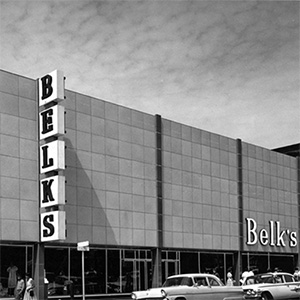
Southern department store chain Belk has announced that it plans to seek Chapter 11 protection. The decision was anticipated, but now the retailer has confirmed that it will move forward with plans to restructure under the bankruptcy protection.
The 133-year-old company is based in Charlotte, N.C., and is owned by private equity firm Sycamore Partners. According to a statement from the company, the retailer will continue normal store operations through bankruptcy, which it expects to exit by the end of February. They do not expect to have any layoffs or store closures, Belk spokeswoman Jenny Anderson told the Charlotte Observer this week. Belk carries jewelry on several price tiers, from costume collections to diamond jewelry and bridal.
“We’re confident that this agreement puts us on the right long-term path toward significantly reducing our debt and providing us with greater financial flexibility to meet our obligations and to continue investing in our business,” Belk CEO Lisa Harper said in the statement.
The restructuring will reduce Belk’s debt by approximately $450 million, and extend maturities on all term loans to July 2025. Sycamore Partners will retain majority control of Belk, and the company will be infused with $225 million in new capital from Sycamore Partners and investment firms KKR and Blackstone Credit, among other lenders.
Belk is one of the only continuously operating retailers that debuted in the United States during the 19th century. The company opened its first store in 1888; it currently operates close to 300 Belk locations in 16 Southeastern states. In 2015, when the Belk family sold to Sycamore Partners for $3 billion, the retailer was the biggest family-owned department store chain in the country.
Like all U.S. department stores, the company has been struggling financially for years, challenged by shifting consumer behaviors that have seen e-commerce and savvy independent retailers thrive, while department stores and malls have declined (in both foot traffic and sales).
COVID-19 accelerated department stores’ woes, and the pandemic’s closures and lockdowns pushed Neiman Marcus, Lord & Taylor, J.C. Penney, and Century 21 into Chapter 11. It’s sad to see Belk—which, like Neiman Marcus, has always been proudly Southern—join this group of once-mighty retail icons that have struggled to entice modern consumers.
Top: Belk in Monroe, N.C. (photo courtesy of Belk)
Follow Emili Vesilind on Instagram: @emilivesilind
- Subscribe to the JCK News Daily
- Subscribe to the JCK Special Report
- Follow JCK on Instagram: @jckmagazine
- Follow JCK on X: @jckmagazine
- Follow JCK on Facebook: @jckmagazine